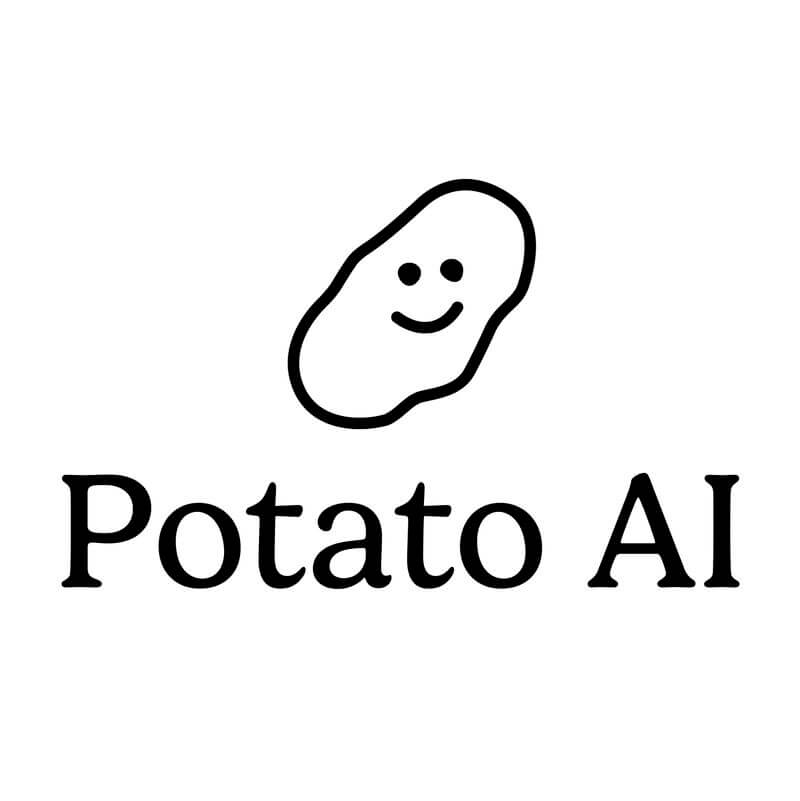Seattle-based startup Potato has secured $4.5 million in seed funding to revolutionize scientific research through AI and robotics. Founded in 2023 by neuroscientist Nick Edwards and technologist Ryan Kosai, Potato is developing an AI platform designed to automate scientific experimentation, from hypothesis generation to experimental execution and analysis. The company's ultimate goal is to create a fully autonomous research cycle where AI agents plan, run, and interpret experiments with scientists in the loop.
Potato's platform currently functions as an AI research assistant. It is capable of generating hypotheses, optimizing research protocols, summarizing scientific literature, critiquing journal articles, and even drafting manuscripts. The AI system uses large language models (LLMs) that are fine-tuned with retrieval-augmented generation (RAG) to ensure its outputs are grounded in verified scientific literature. The platform also offers automated review of uploaded papers, highlighting methods, evaluating controls, and suggesting follow-up experiments, as well as visualizing workflows by generating diagrams from text-based protocol descriptions. Researchers can also query the system on specific biology topics and receive answers grounded in published work.
With the new funding, Potato aims to move beyond computational support and develop robotic capabilities for laboratory bench work. The company is collaborating with Ginkgo Automation to develop automated experiments. This will enable the creation of a closed-loop model of science, facilitating faster and more reliable scientific results, particularly in underfunded or neglected research areas.
The company's name, Potato, is a reference to the classic potato battery experiment, symbolizing the idea of building complex tools from simple foundations. Potato's co-founder and CEO, Nick Edwards, envisions a future where advances in AI will make scientific discovery faster and cheaper. He describes Potato as a "reproducibility company," aiming to address longstanding problems in research consistency by automating literature review and standardizing protocol design.
The need for automation in scientific research stems from the time-consuming and labor-intensive nature of traditional experimental processes. Scientists often spend countless hours designing experiments, synthesizing materials, analyzing results, and repeating the process until desired properties are achieved. Robotic systems can perform experiments continuously without human fatigue, significantly speeding up research. Moreover, robots can execute precise experimental steps with greater consistency than humans and reduce safety risks by handling hazardous substances. By automating routine tasks, scientists can focus on higher-level research questions, paving the way for faster breakthroughs in medicine, energy, and sustainability.
Integrating AI into the laboratory workflow allows for automating the entire research cycle—from designing experiments to synthesizing materials and analyzing results. AI can analyze vast datasets generated by experiments, identify patterns, and suggest new compounds or research directions.
Several levels of automation can be implemented in laboratories, ranging from basic assistance to complete autonomy:
- Assistive Automation: Robots handle specific tasks, like liquid handling, while humans do the rest.
- Partial Automation: Robots execute several steps in sequence, with scientists monitoring the setup.
- Conditional Automation: Robots run the entire experiment, with humans intervening only if unexpected issues arise.
- High Automation: Robots independently manage experiments, adjust equipment, and handle unforeseen problems.
- Full Automation: Robots and AI work fully autonomously, including self-maintenance and safety management.
Potato's platform is already deployed in labs across major institutions, including Stanford, Harvard, MIT, UC San Diego, UC Berkeley, Scripps Research, and the University of Washington. While initially focused on life sciences, Potato plans to expand into material sciences and chemistry. The company's technology utilizes chat-based, generative AI tools built from large language models refined using retrieval-augmented generation (RAG). Potato has partnered with Wiley, an academic publishing company, to incorporate scientific literature into its AI platform, improving the accuracy of its results.
The rise of AI and robotics in scientific research signifies a major shift towards faster, more efficient, and more reproducible experimentation. With companies like Potato leading the charge, the future of scientific discovery looks set to be transformed.

















